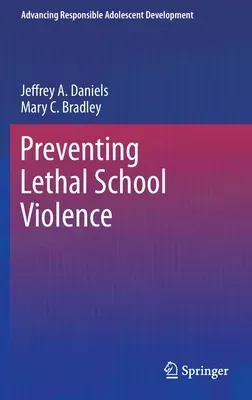Bullying. Gang assaults. Rampage shootings. School violence, especially
when it turns deadly, has enduring social and psychological effects on
students, faculty, staff, and the community. And though a great deal of
research focuses on the significant role children's positive social
development plays in reducing incidents of school violence, in-depth
examinations of evidence-based preventive measures have remained minimal
until now.
With its focus on averting lethal school violence, this unique volume
translates the prosocial findings into practicable preventive measures
that can be put to use in school settings. Making expert use of news
reports as well as scholarly data, Preventing Lethal School Violence
clarifies the links between bullying and lethal violence and delineates
typical characteristics of school shooters while cautioning against
outright profiling. Students' awareness of self and others, strong
connections with adults, and other social and ethical skills form the
basis of a comprehensive, research-based model for reducing--and
potentially eliminating--lethal incidents at school.
This accessible volume:
- Outlines the scope of school violence as a broader social problem.
- Summarizes current information on the traits common to students who
commit lethal violence at school.
- Examines the relationship between bullying/cyberbullying and rampage
incidents.
- Analyzes examples of successful prevention of violent acts and
resolution of hostage situations.
- Describes in detail the concept of positive school climate and
introduces the Safe School Communities Model.
- Synthesizes key research data into violence prevention skills for
students, teachers, administrators, and all professionals working in
schools.
Preventing Lethal School Violence is a must-have resource for
researchers and professionals in school psychology and allied education
disciplines, including school administration, school counseling, and
social work.

